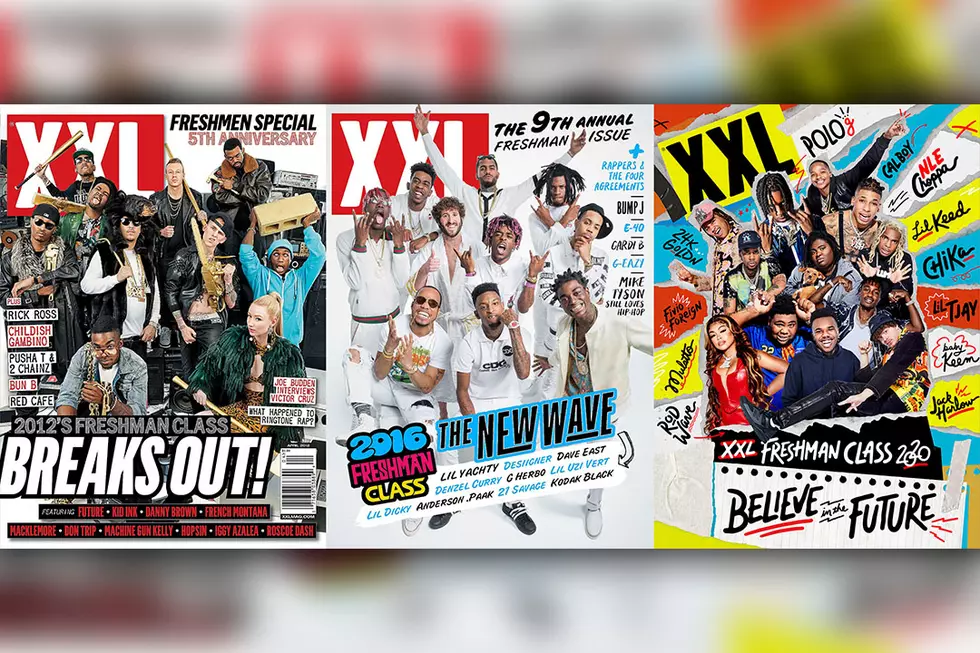
Angel Haze Struggles To Find Her Identity On ‘Dirty Gold’
Angel Haze has centered her young career around being a "voice for the voiceless." Back in 2012, she built a cult following with her critically acclaimed Reservation EP that included promising songs like “Werkin’ Girls," “New York” and “Hot Like Fire.” Fueled by her ability to tell her story with a visceral delivery, the Detroit-bred MC followed up with Classick that made waves for her deeply introspective rendition of “Cleaning Out My Closet” recounting sexual abuse. Haze's major-label debut was slated to come out Mar. 3, but claiming she wanted to quit depriving her fans of new music—and throwing some choice words at Republic—Haze leaked the album in December. Ultimately, she won the battle, bumped her date to Dec. 30, and now Dirty Gold has arrived.
Dirty Gold is more polished than her previous releases: Markus Dravs, Mike Dean, Greg Kurstin and other key players shape the album’s mainstream radio leanings. On “Battle Cry” featuring Sia, melancholy piano and pulsating drums serve as the backdrop for Haze’s verses on her rise to stardom. Another example is the title track, where Haze addresses former flames and personal struggles over somber guitars. The ballad has the potential to be the commercial hit that catapults her career.
Though Haze is lyrically potent throughout Dirty Gold, there are missteps. Haze wants to expand beyond hip-hop by attempting to spread herself across a variety of genres. At times, her comfort zone brings lyrical heat like “A Tribe Called Red” or displays her enticing voice on “White Lilies – White Lies.” Even the album’s single, “Echelon (It’s My Way)," proves that she can throw down braggadocious rhymes with her signature rapid-fire delivery and turn it into an upbeat tune. Other times, her attempts at experimenting with pop or progressive rock are too far of a stretch, resulting in Dirty Gold’s weaker links like “Angels & Airwaves.” Compared to Haze’s more cohesive projects in the past, dabbling into different sounds can be distracting and dilutes her empowering messages.
Despite the album’s faults, Haze is in her moment where evolving as an artist comes first. Throughout Dirty Gold, Haze sheds layers of her past in order to take steps forward. For listeners who have been through similar situations, her accounts are often mesmerizing. “Deep Sea Diver,” for example, is a familiar topic of unrequited love, and “Black Dahlia” pulls off a highly conceptual idea about writing a letter to a younger version of her mother. It’s these songs on the album that show she’s matured greatly since her string of mixtapes and freestyles that won fans over.
Haze's album is a reflection of her constantly changing tastes. The 22-year-old is ridiculously talented—just listen again to the beautifully crafted "Planes Fly." But Dirty Gold's shortcomings overshadow the shining moments on the album as Haze struggles to find her identity, somewhere between underground rebel and mainstream player. Her first-week sales of 857 copies in the UK and her reported low numbers of 1,115 units in the U.S. show she's not quite ready to move to the top tier and that unfortunately, not all that glitters is gold.
More From XXL









